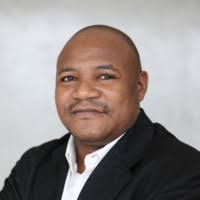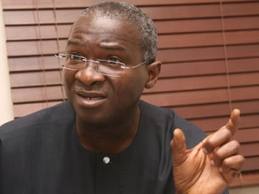Doing something for Lagos
By: Chinedu Ozordi
“Every hour, an estimated 100 people enter Lagos, never to go back home again,” said Governor Babatunde Fashola in 2009. “A growing population has continued to share limited resources; but it is our goal to make Lagos as conducive as possible to anybody  who chooses her as a home.”
who chooses her as a home.”
The above summarises my perception of Mr Fashola’s unique administration style. The man is a realist and has doggedly gone about his business of making the state better than he met it. Rather than be cowed by the numbers, he has tried to maximise its advantages.
Has he made mistakes? Yes. Could he have done a better job? Yes.
I do not agree that Mr Fashola has done well in accomodating the downtrodden of the society; and while I admit that the numbers are overwhelming, he ought to have done better in making the mega city equally “as conducive as possible” for them.
According to the Lagos State Government, an estimated 21 million people are crammed in a liveable area of 356,861 hectares, of which 75,755 are wetlands. With its strategic position as the nation’s commercial capital, people continually migrate to the city hoping to find work and make a fortune.
A United Nations report projects that the city’s population would hit 23.2 million in 2015. This huge population will continue to strain the already inadequate housing available in the city, resulting in more cramped space for some inhabitants.
The resultant effect is the growing cases of bad blood between residents who are unconscious of the pains their actions, or inaction, are causing their neighbours; often with devastating consequences.
For some people, the city is a ticking bomb; and Mr Fashola’s admirable policies and actions are only delaying the inevitable. Others doubt that successive governments can do more.
But the government alone cannot do this. What are we doing? Residents of Lagos have continued to see the city as a ‘no man’s land’ where the majority come to primarily make money and live in because there are no better options.
A slew of non-governmental organisations have done remarkable work in promoting civic responsibility, social justice and neigbourliness. Groups like Volunteer Corps, Freedom Foundation, Project Alert, etc. deserve commendation for the back-breaking work they have done over the years to make the city a little bit better. And so have various individuals.
We need more of them. It is time residents begin to realise that building a mega city that we all can live a little bit better lives in cannot be left for the government alone. It is time we pledge to do something in our own houses, streets, communities to make the city better.
A project I worked on recently had me looking for, and partnering with journalists to identify, regular Lagos residents doing random and simple acts of kindness to make the city a better place:
In Ebute Metta, Kingsley Imeh runs errands for an elderly woman and refuses to be paid even though he needs the money.
In Ajegunle, Wome Uyeye routinely stops street kids to teach them one skill or the other and also get them to help clean up the environment.
In Surulere, Daniel steps out to manage traffic flow at various trouble spots at peak hours.
In Okota, Eze Uwalaka stops to commend street cleaners for doing a decent job.
In Mile 2, a police officer dances while controlling traffic to reduce road rage by commuters.
Then, there is this group working to change behaviour in Lagos. For starters, we all need to pledge here – http://www.mylagospledge.com/ – to do something to make the city better.
There are many more people doing similar simple acts as their bit to make Lagos a better place; and there should be more. Let’s all begin to think of what we can do to contribute.




